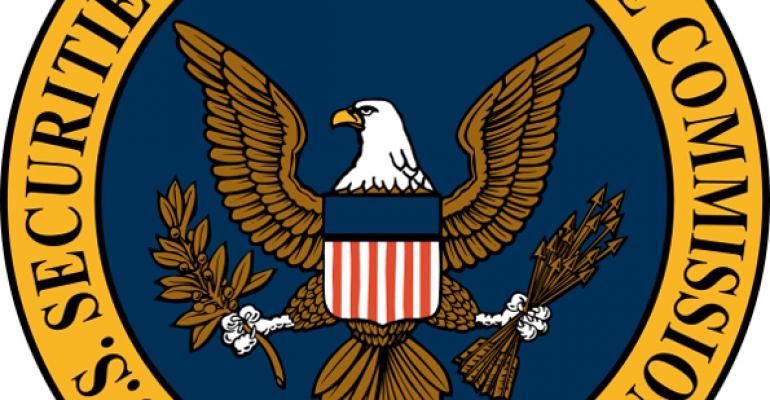Throughout the rise of the financial industry, there has been a justifiably strong desire on the part of individuals and broker-dealers to hold the SEC accountable for its regulating (or lack thereof) of the securities market. Never has that desire been as prevalent as it is currently, as just as the fire created by the Bernard Madoff Ponzi scheme began to die down, the more recent Allen Stanford Ponzi scheme reignited it. However, as strong as the desire to pursue justice against the SEC for its inability to prevent these destructive occurrences may be, the sovereign immunity granted by the federal government to the SEC unjustly leaves these potential claimants without any semblance of a remedy.
The SEC obtains its extremely broad sovereign immunity from the Discretionary Function Exception (“DFE”) of the Federal Tort Claims Act, one of the most troubling and all together frightening provisions within the labyrinth of securities-related laws. When creating this statute, Congress granted full immunity to the SEC “based upon the exercise or performance or the failure to exercise or perform a discretionary function or duty on the part of a federal agency or an employee of the Government, whether or not the discretion involved be abused." This provision irresponsibly gives the SEC complete discretion to “prioritize” which cases are worth pursuing, without the slightest consequences for not only negligence, but any gross negligence, stemming from those SEC prioritizations.
Congress certainly had good intentions when it drafted the DFE of the FTCA, primarily aiming to prevent an inevitable clogging of the courts with countless suits by any variety of claimants if the SEC was fair game. However, by putting the SEC, and more importantly the federal government, completely out of reach, the results have and will continue to prove detrimental for numerous victims of the recent Ponzi scheme epidemic. In the 2011 S.D.N.Y. decision Molchatsky v. U.S., two of Madoff’s victims sued the federal government, attempting to hold it accountable for the gross negligence exhibited by the SEC for its inability and failure to discover Madoff’s scheme. However, the federal district court decided that any abuse of discretion or negligence (even gross negligence) by the government is shielded by the DFE, leaving it free of liability. Less than a month ago inDonahue, et al. v. U.S., a similar suit, the Federal District Court of D.C. affirmed that mindset, finding that “were the plaintiffs to prevail, the SEC would become the guarantor of the investment decisions of individuals who choose to participate in regulated markets.” While no one is expecting it to adopt a position as a guarantor, should the SEC fall on its face after being apprised over and over again of the Madoff fraud, it should not be able to escape liability.
One major problem stemming from the SEC’s sovereign immunity is its ability to all together avoid pursuing action against major infractions like the Ponzi schemers. By taking advantage of the part of the DFE permitting immunity for “the failure to exercise or perform a discretionary function or duty”, the SEC is essentially able to turn a blind eye to the gathering storm of a Ponzi scheme, with a full shield of immunity for deciding to do so. In order to pursue these multi-billion dollar frauds, it would occupy a seemingly endless amount of SEC time, manpower and other resources, a cost which the DFE easily allows them to sidestep by wholly avoiding the case, while walking away scotch-free.
A possible solution to try and lessen the advantage that the grant of sovereign immunity gives the SEC over individuals is to treat the SEC similar to another type of government entity, a utility company. Utility companies, acting as government municipalities, are granted some degree of immunity from legal action. However, these companies are often still held accountable for their gross negligence. In the recent decision of Seals v. County of Morris, the New Jersey Supreme Court held a power company liable for its grossly negligent placement of an electrical pole in an accident-prone location, leading to the plaintiff’s injury. The court found that by failing to complete a thorough investigation of the location of the electrical pole, as required by statute, the power company could not claim sovereign immunity as a municipality. This line of reasoning could easily be shifted to apply to the SEC. By holding the government liable for the SEC’s gross negligence in failing to detect fraudulent activity totaling in the tens of billions of dollars, as was the case with the Madoff Ponzi scheme, it would provide further incentive for the government to prevent such economically devastating debacles from occurring.
It is understandable that the federal government wants to limit its agencies from exposure to incessant legal action. However, with the wave of destruction brought by the Ponzi schemes continuing to surge, granting organizations like the SEC absolute sovereign immunity – when it was specifically apprised more than once that organizations like Madoff are a scam, is not the answer. The SEC should be held liable for gross negligence, especially when its behavior in failing to detect and pursue major instances of fraud. Such a change would be a step in the right direction to make the wheels of the securities industry spin as flawlessly as possible.
Richard Roth is the founder and president of The Roth Law Firm, PLLC, a boutique litigation firm that concentrates in litigating securities arbitrations and SEC/FINRA enforcement actions.

